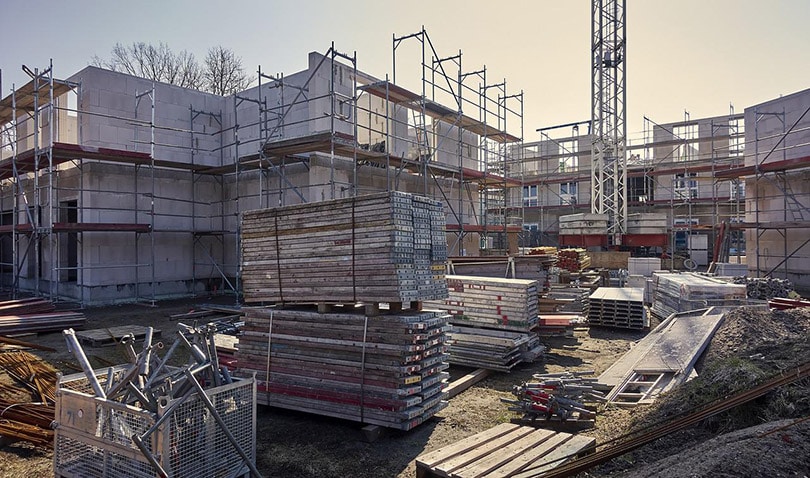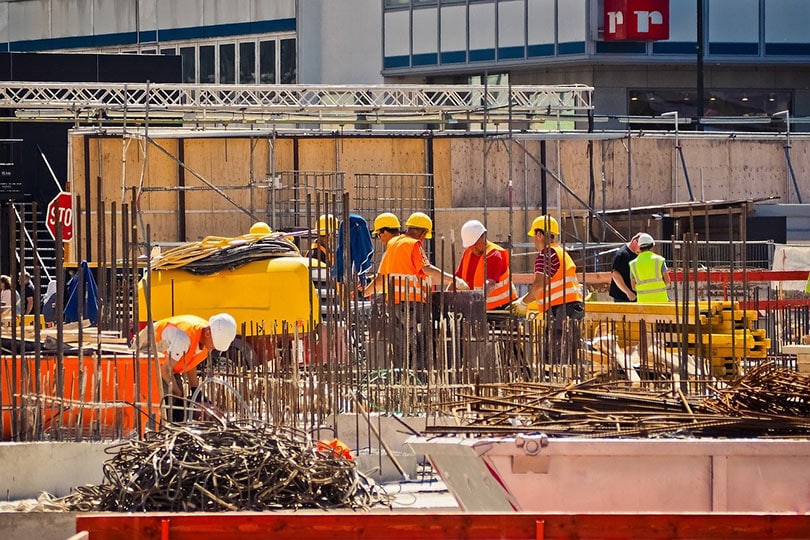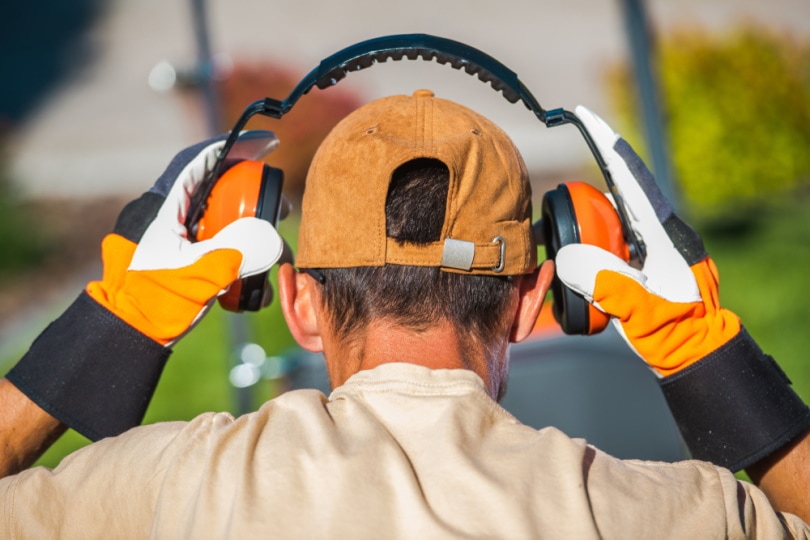What’s the Noise Level of a Construction Site? With Decibel Guide
-
Pete Ortiz
- Last updated:

Whether you’re watching as the construction crew sets up across the street or you’re getting ready to go work at one, knowing the amount of noise that’s coming can make everything a bit easier to deal with.
While the exact noise level of a construction site will vary depending on a few different factors, you can expect a typical construction site to have a decibel reading between 80 and 90. But what factors can affect the overall noise level, and when should you put on some hearing protection?
We’ll answer those questions for you here before diving into a few other things you should know about protecting your hearing at a construction site.
 When Do You Need Hearing Protection?
When Do You Need Hearing Protection?
As a general rule, you should wear hearing protection when you’re around decibel levels above 85 dB¹. This means that if you’re working on a construction site, you might need to wear hearing protection at certain times.
However, it’s important to note that this is only from a CDC hearing protection standpoint, and OSHA and your company might have more stringent requirements you need to follow when you’re on a construction site.

Factors That Affect a Construction Site’s Noise Level
While 85 dB is a great general guide to how loud a construction site can be, many individual factors go into it. Sometimes, a construction site can be much louder, and other times it can be much quieter. We’ve highlighted a few of the factors that go into this for you below.
Types of Equipment
If you’re trying to gauge the noise level at a construction site accurately, you really need to know what equipment they use. Different types of equipment create different noise levels. We’ve highlighted some of the most common construction equipment and the noise levels they produce here.
| Type of Equipment | Noise Level (dB) |
| Hammer Drill | 116 |
| Pile Driver | 120 |
| Nail Gun | 97 |
| Forklift | 85 |
| Backhoe | 85 |
| Trash Compactor | 55 |
| Crane | 97 |
| Roto Hammer | 95.1 |
| Welder | 91.2 |
| Grinder | 97 |
Types of Work
While the type of equipment matters, so does what they’re using it for. Drilling holes in a home’s framework isn’t going to be quite as loud as drilling holes in concrete.
If you’re trying to figure out how loud a construction site is, it’s important to consider the type of construction project.
Proximity
The closer you are to something, the louder it is. Overall, a construction site might have decibel levels between 80 and 90, but if you’re standing right next to the equipment, it’s going to be even louder.
Conversely, if you’re standing across the street from the construction site, it’s not going to be quite as loud as if you were standing in the middle of it. The farther away you can get from the louder equipment, the lower the decibel level.
Other Ways to Protect Your Hearing
If you’re going to spend time near a construction site, you need to know how to protect your hearing. While hearing protection is a great place to start, it’s not the only thing you can do. We’ve highlighted four other things you should do regularly if you’re spending an extended amount of time on a construction site.

Limit Exposure Time
While this isn’t always possible if you can limit the amount of time you’re around the louder noises, it can make a big difference. If you can take your lunch or break away from the job site, it can give your ears a break and time to reset.
Use Sound Barriers
If you’re setting up a construction site, this is something you’ll want to consider. Sound barriers can help trap louder sounds in one area, making the overall job site quieter. This is one reason why so many construction companies hire professionals to help them keep their sound levels in check at the construction site.
Use Quieter Equipment
Some tools are simply louder than others. If you can upgrade your equipment and get something with noise-canceling features or that is simply quieter, it can help quiet down the entire construction site. Of course, this isn’t always an option, and sometimes it’s too cost-prohibitive, so you’ll just have to deal with the louder noises.
Test Your Hearing
Test your hearing regularly to ensure you’re not experiencing any hearing loss. If you do notice a drop in hearing, frequent testing will also help you narrow down the exact time frame it happened.
Final Thoughts
Construction sites are loud, but now that you know just how loud they can be, how you can reduce the overall noise levels. And when you need to wear hearing protection, you can protect your ears and hearing.
Don’t take your hearing for granted. Once it’s gone, it is gone, and there’s nothing you can do to bring it back.
Featured Image Credit: ThomasWolter, Pixabay
Contents

 When Do You Need Hearing Protection?
When Do You Need Hearing Protection?